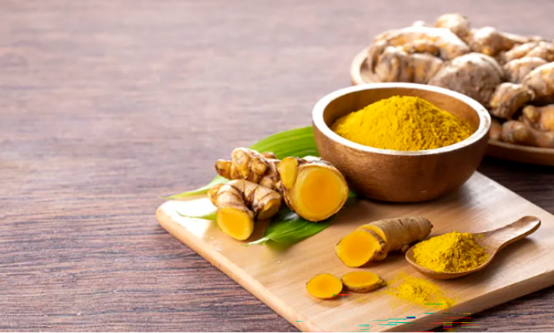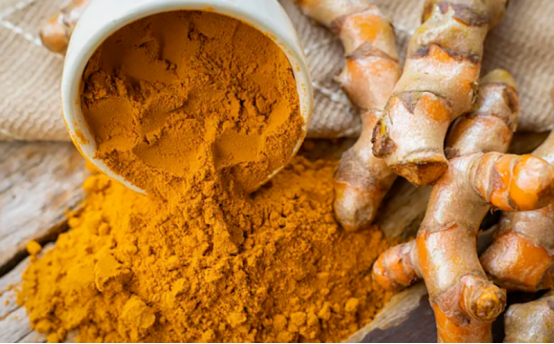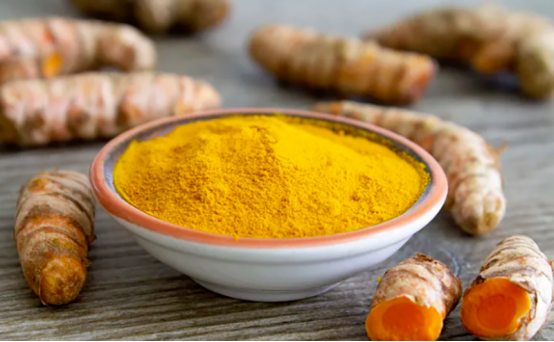Is it true that curcumin can "reduce inflammation" within 24 hours?
10/09/2025 13:43:33
1 Curcumin: The "anti-inflammatory master" in the kitchen
As the core active ingredient of turmeric, curcumin is recorded in the Compendium of Materia Medica as a natural medicinal material that "breaks blood and promotes qi". Now it has been verified by modern science as the nemesis of chronic inflammation.

A breakthrough study by Shanghai Jiaotong University in 2023 showed that curcumin can accurately block the NF-κB signaling pathway (equivalent to turning off the inflammation switch) and reduce the level of the key inflammatory factor IL-6 by 47% within 24 hours, which is comparable to a three-day dose of traditional anti-inflammatory drugs.But the turmeric powder in the kitchen is not an "instant special medicine": each gram of turmeric contains only 30-50 mg of curcumin, and the human body absorbs less than 7% .This means that 30 grams of turmeric powder (about 6 teaspoons) are needed every day to achieve the experimental effect, which is far beyond the scope of normal diet.To this end, scientists have proposed a "golden combination" plan: consuming turmeric and black pepper containing piperine together can increase the absorption rate by 20 times; or cooking with olive oil to break through the absorption barrier by using fat solubility.
It is worth noting that the European League Against Rheumatism Guidelines have included curcumin in the adjuvant therapy of chronic arthritis, but experts specifically remind that it is more suitable for long-term conditioning of chronic inflammation such as rheumatoid arthritis, and drug intervention is still required during acute attacks.For people over 50 years old, it is recommended to take 200-500 mg of purified curcumin through supplements every day, which is equivalent to 3-5 grams of scientific concentration of high-quality turmeric powder.
2 Other potential benefits of curcumin
In addition to its well-known anti-inflammatory effect, the health potential of curcumin is attracting scientific attention in many fields:
1. Antioxidant effect Curcumin's unique molecular structure can effectively neutralize free radicals and slow down the damage of oxidative stress to cells. This antioxidant mechanism is like a "protective net" for the body, which may delay the aging process associated with oxidative damage.

2. Protect cardiovascular and cerebrovascular diseases
Preliminary studies have shown that curcumin may intervene in cardiovascular problems such as arteriosclerosis by regulating lipid metabolism (such as inhibiting cholesterol synthesis) and improving endothelial function. Its mild anticoagulant properties are also believed to help maintain smooth blood flow.
3. Improve intestinal health
Laboratory studies have shown that curcumin can improve the balance of intestinal microecology by inhibiting proinflammatory factors (such as IL-6) and promoting the proliferation of beneficial bacteria. It has been observed in animal models to relieve inflammation of ulcerative colitis.
4. Potential anti-cancer effects
Cell experiments have found that curcumin may interfere with cancer cell proliferation signaling pathways and induce apoptosis of certain tumor cells. However, it should be clear that these findings are only at the basic research level and have not been transformed into clinical treatment methods. It should be emphasized that most of the above potential effects are still in the laboratory research stage, and the actual effects are significantly affected by dose, absorption rate and individual differences
3 Precautions for the use of curcumin
Dosage safety line The European Food Safety Authority recommends that the daily intake of curcumin should not exceed 3 mg/kg body weight (about 180 mg for a 60 kg adult). Overdose may cause liver damage risk. People with abnormal liver function need to use it under the guidance of a doctor.
Drug conflict warning Curcumin interacts with anticoagulants, hypoglycemic drugs, and chemotherapy drugs. The combined use needs to be separated by more than 4 hours. People with abnormal coagulation function and those in the postoperative recovery period should completely avoid using it.
Contraindications for special populations Pregnant women (especially in the late pregnancy), patients with acute gallstone attacks, and patients with active gastric ulcers should be prohibited from using it; patients with iron deficiency anemia need to take it 2 hours apart from iron supplements.
The cognitive boundary of the effect has limited effect on relieving acute inflammation (such as acute gout attacks) and cannot replace emergency drugs. Patients with chronic diseases need to take it for more than 8 weeks before the effect can be seen, and the individual difference can be up to 6 times.

Curcumin does have certain potential in anti-inflammatory, but it is not a "universal magic medicine". When facing health problems, we should not blindly follow the trend, but look at it scientifically and make rational choices. Health is the cornerstone of life. We must be responsible for our own bodies. Don’t wait until your body shows a "red light" before you get anxious. Take action now, care for yourself in the right way, and embrace a healthy life.




